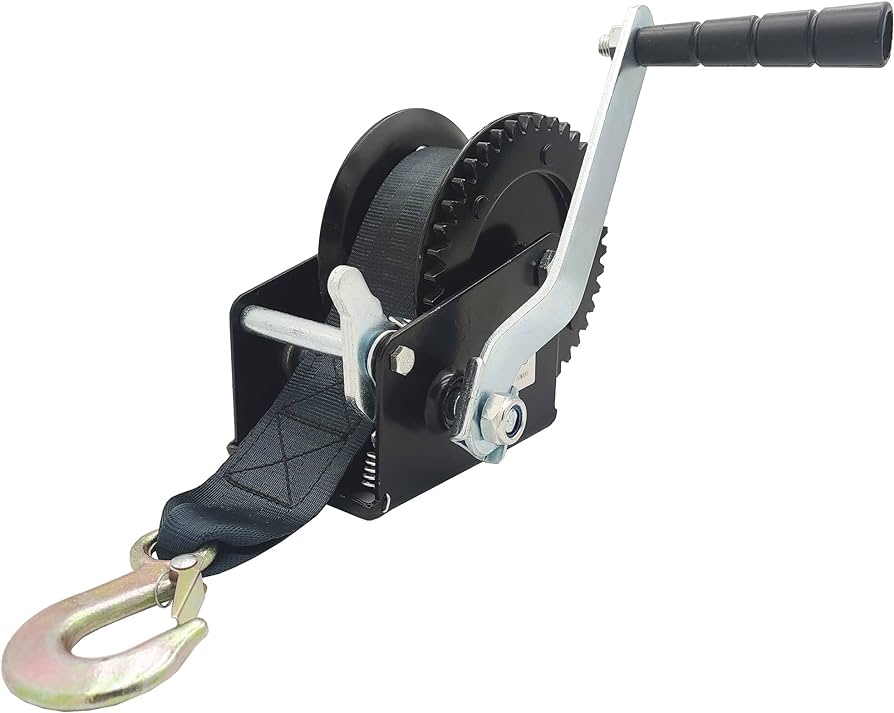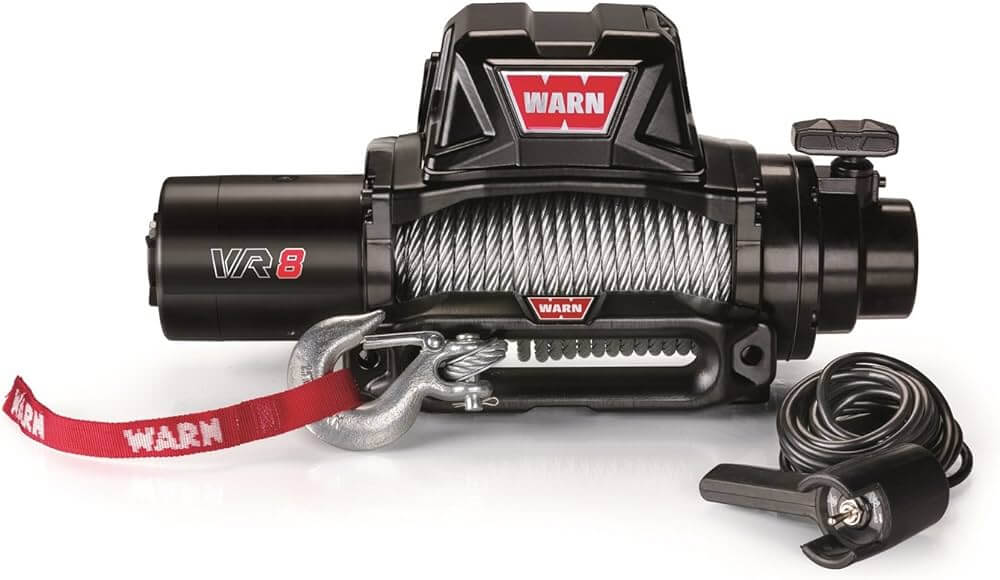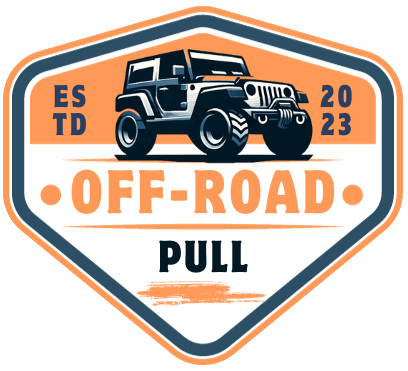When deciding between a hand winch and an electric winch, it comes down to three key factors: how much power you need, your typical use case, and whether portability or automation is more important. This guide breaks down the core differences, including load capacity, setup, and maintenance, to help you quickly determine which winch best suits your needs, whether you’re handling off-road recoveries, trailer loading, or outdoor gear transport.
At a Glance:
- Hand Winch: Best for light to moderate loads, budget-friendly, fully manual, no power source needed.
- Electric Winch: Ideal for heavy loads, faster operation, requires a battery or electrical hookup.
What Is a Hand Winch and How Does It Work?

Hand winches are mechanical devices operated manually by turning a crank. They use a simple gear and drum mechanism to wind up a cable or rope, allowing you to lift or pull loads with your strength.
Advantages of Hand Winches
- Portability: Hand winches are compact and lightweight, making them easy to transport and use in various locations. Whether you’re camping or working on a small construction project, you can easily carry a hand winch with you.
- Low Maintenance: These winches have fewer moving parts and do not require a power source, resulting in lower maintenance needs. Regular inspections and occasional lubrication are usually sufficient.
- Cost-Effectiveness: Hand winches are generally more affordable compared to electric winches. If you’re on a tight budget, a hand winch can provide the functionality you need without breaking the bank.
- Reliability in Remote Areas: In areas without access to electricity or other power sources, hand winches are a reliable option. You don’t need to worry about finding an outlet or keeping batteries charged.
Disadvantages of Hand Winches
- Physical Effort Required: Operating a hand winch requires significant physical strength and effort, especially for heavier loads. This can be tiring and time-consuming.
- Slower Operation: Hand winches operate at a slower pace compared to electric winches. If you need to lift or pull loads quickly, a hand winch may not be the best choice.
- Limited Lifting Capacity: Hand winches have a lower lifting capacity compared to their electric counterparts. They are suitable for lighter loads, but for heavier tasks, you might need a more powerful option.
What Is an Electric Winch and When Should You Use One?

Electric winches, on the other hand, are powered by electricity. They use a motor to drive the winching mechanism, providing a faster and more efficient way to lift or pull loads.
Advantages of Electric Winches
- Effortless Operation: Electric winches require minimal physical effort to operate. Simply press a button, and the motor does all the work for you, making it ideal for those who need to move heavy loads frequently.
- Faster Lifting Speeds: Electric winches operate at higher speeds, allowing you to complete tasks more quickly. This can be a significant advantage in time-sensitive situations.
- Higher Lifting Capacities: Electric winches are designed to handle heavier loads, making them suitable for industrial applications and heavy-duty tasks.
- Versatility in Different Applications: From off-road vehicle recovery to construction and marine applications, electric winches are versatile tools that can be used in various settings.
Disadvantages of Electric Winches
- Power Source Requirement: Electric winches need a power source, such as a battery or an electrical outlet. This can limit their use in remote or off-grid locations.
- Higher Initial Cost: Electric winches are generally more expensive upfront compared to hand winches. The cost of the motor and electrical components adds to the price.
- Maintenance Needs: Electric winches have more complex mechanisms and require regular maintenance to ensure optimal performance. This includes checking the motor, electrical connections, and lubrication of moving parts.
- Weight and Size Considerations: Electric winches are typically larger and heavier than hand winches, which can make them less portable and harder to handle in certain situations.
Hand Winch vs Electric Winch: Key Factors to Help You Choose
Selecting the right winch for your needs involves evaluating various factors. Here’s a detailed look at what you should consider:
Intended Use
The first thing to think about is what you’ll be using the winch for. If you need a winch for recreational activities like camping, boating, or small DIY projects, a hand winch might be sufficient.
They are great for light-duty tasks where portability and ease of use are essential.
On the other hand, for industrial or heavy-duty applications such as construction, mining, or large-scale vehicle recovery, an electric winch is often necessary due to its higher lifting capacity and faster operation.
Lifting Capacity Requirements
The weight of the loads you’ll be lifting or pulling is a crucial consideration. Hand winches are typically suitable for lighter tasks, with capacities that can handle a few hundred to a few thousand pounds.
If your work involves moving significantly heavier loads, you will need an electric winch.
Electric winches can lift several tons, making them ideal for heavy-duty tasks that hand winches simply can’t manage.
Frequency of Use
How often you plan to use the winch is another important factor. If you only need a winch occasionally, such as for weekend projects or sporadic use, a hand winch might be adequate.
They are simple, reliable, and don’t require much maintenance. However, if you expect to use the winch regularly or for extended periods, an electric winch will save you a lot of time and effort.
The motorized operation reduces physical strain and speeds up the process, which is essential for frequent use.
Availability of Power Sources
Consider whether you have access to power sources where you’ll be using the winch. Electric winches require a power source, either from a battery or an electrical outlet.
If you’re often working in remote locations where electricity isn’t available, a hand winch is more practical.
Hand winches do not need any external power, making them reliable in off-grid areas.
Budget and Cost Considerations
Your budget is a significant factor in deciding which winch to buy. Hand winches are generally more affordable, with lower initial costs and minimal maintenance expenses.
If you’re looking to save money, a hand winch is a cost-effective option. However, if you have the budget and require the benefits of an electric winch, such as higher capacity and ease of use, it’s worth the investment.
Electric winches are more expensive upfront but can offer better performance for demanding tasks.
Portability Needs
If you need to move the winch frequently from one location to another, portability is key. Hand winches are lighter and more compact, making them easy to transport and use in different settings.
They are ideal for situations where you need a portable solution. In contrast, electric winches are heavier and bulkier, which can be a drawback if you need to move them often.
Consider how often and how far you’ll need to transport the winch when making your decision.
Environmental Conditions :
Think about the environmental conditions in which you’ll be using the winch. Hand winches are often more reliable in harsh or remote environments where power sources may be unreliable or nonexistent.
They are less affected by weather conditions and are simpler to maintain in challenging environments.
Electric winches, while powerful, rely on electrical components that can be affected by extreme temperatures, moisture, or dust.
Ensure the winch you choose is suitable for the conditions you’ll be working in.
Applications of Hand Winches
Hand winches are incredibly useful in various scenarios due to their simplicity and portability:
Camping and Outdoor Activities
When you’re out camping, a hand winch can be indispensable. It’s perfect for setting up tents, securing tarps, or even pulling your vehicle out of a tricky spot.
Because they’re lightweight and easy to carry, you can bring a hand winch along without much hassle. If you want a portable manual tool perfect for quick outdoor recoveries, check out our best come-along winches — handpicked for off-road and DIY use.
Small-Scale Construction Projects
For DIY enthusiasts and small construction sites, hand winches are great for lifting and pulling materials.
They help in moving heavy items like beams, panels, or equipment without needing electrical power, making them ideal for areas where power tools might not be available.
If you’re considering buying one, be sure to check out our selection of the best hand winches for off-road and trailer recovery to find the most reliable models for your needs.
Emergency Situations
In emergencies, such as natural disasters or accidents, hand winches can be lifesavers. They can help in rescuing trapped individuals, clearing debris, or moving obstacles.
Their manual operation means you don’t need to worry about power availability during urgent situations.
Boat Launching and Retrieval
If you enjoy boating, a hand winch is a must-have tool. It’s commonly used for launching and retrieving boats.
The winch makes it easier to get your boat in and out of the water, especially in places where boat ramps might not be available.
Applications of Electric Winches
Electric winches are powerful tools suited for more demanding tasks:
Off-Road Vehicle Recovery
For off-road enthusiasts, electric winches are essential. They provide the power needed to recover vehicles stuck in mud, sand, or snow.
With the push of a button, you can pull a heavy vehicle back onto solid ground, making your adventures safer and more enjoyable. For top-rated models built for performance and ease of use, check out our best electric winches for easier recoveries.
Heavy-Duty Industrial Applications
In factories and warehouses, electric winches are used to lift and move heavy materials efficiently. They help in handling large loads, reducing manual labor and increasing productivity.
Their high lifting capacities make them indispensable in industrial settings.
Construction and Mining Sites
Electric winches excel in the demanding environments of construction and mining. They are used to lift heavy equipment, move construction materials, and support various operations.
Their speed and lifting power make them ideal for these tough applications.
Marine and Boating Applications
Electric winches are vital in marine settings. They are used for anchoring, lifting heavy equipment, and other tasks on boats and ships. Their reliability and strength ensure that marine operations run smoothly, whether you’re working on a small boat or a large vessel.
Maintenance and Safety Tips
To ensure the longevity and safe operation of your winches, follow these maintenance and safety tips:
Proper Maintenance for Hand Winches: Regularly inspect the cable or rope for wear and tear. Lubricate moving parts to prevent rust and ensure smooth operation. Store in a dry place to avoid corrosion.
Proper Maintenance for Electric Winches: Check electrical connections and battery levels regularly. Inspect the motor and gears for any signs of damage or wear. Keep the winch clean and lubricated according to the manufacturer’s instructions.
Safety Precautions for Using Winches: Always wear gloves to protect your hands when handling cables or ropes. Never exceed the winch’s rated capacity. Use proper anchoring techniques to ensure stability. Keep bystanders clear of the winching area to avoid accidents.
Which Winch Is Best for You? Final Thoughts
Choosing between a hand winch and an electric winch depends on your specific needs and circumstances. Hand winches offer portability and cost-effectiveness, making them ideal for lighter tasks and remote areas.
Electric winches provide power and efficiency, suitable for heavy-duty applications and frequent use.
By considering factors such as intended use, lifting capacity, and budget, you can make an informed decision and select the right winch for your needs.
Whether you’re camping, working on a construction site, or recovering a vehicle, there’s a winch out there that can make your tasks easier and more efficient.

